People who move to Korea for a job opportunity go for a variety of reasons. For many, a major reason is money! Saving or paying off debt. Some people are successful in this, but just as many can’t seem to figure out how to go about the business of becoming more financially secure. Here’s a look into how we managed to save millions!!!…in Korean won :).
Knowing is Half the Battle.
Step 1: If you’re bad with money, admit it. If you’re broke, admit it. It’s okay…no one else has to know, but you should! The only way you can make a change is to admit to yourself that you don’t know how to save.
Step 2: don’t judge yourself! That’s a sure way to convince yourself that you’ll never be good with money.
Are we ready for Step 3 then? Okay let’s go.
Track Your Spending and Get Yourself on a Budget
A LOT of people we met in Korea expressed confusion or concern about often coming to the end of the month with no money left. Negative balances in bank accounts, borrowing/taking money, and rejected debit/credit cards were the norm. If most people sat down and tracked their spending for a month or 2, they would have a “wtf!” reaction. Coffees, beers, hobbies, clothes, taxis, trips, dinners…they all add up! Track it!
Once you have an idea of what’s going on, make a plan. You want to save x number of dollars in a year? Well how can you do it? Plan! Here’s a basic example of what a savings plan could look like for someone, we’ll call him Max, making 2,000,000 KRW ($1818 USD). Salaries vary a lot, but this is a good base salary for someone working in a public school with just a B.A. in a field unrelated to Education or English. We had different goals from Max, but from our own experiences and talking with others, this is generally a good estimate. Remember, if you have loans or debt at home, you’ll want to be as aggressive as possible.
| Max’s Plan | Deductions | 2,000,000 KRW ($1818 USD) |
| Save/Loan Payment | 45% | 900,000 ($818) |
| Travel Fund | 15% | 300,000 ($272) |
| Bills/Transport/Hobbies | 15% | 300,000 ($272) |
| Daily Living/Groceries | 15% | 300,000 ($272) |
| Gov Deductions | 10% | 200,000 ($181) |
In a month, Max would be able to allocate 1.2 million KRW ($1090 USD) to saving/paying off debt and traveling! This is a pretty aggressive plan, but even saving a quarter of your income could offer you some serious do-re-mi at the end of a year or make a huge dent in your debt. Max’s plan is pretty strict, and, personally, we also started to follow pretty strict savings goals during our second year there.
If we ever went over our daily expenses, we were forced to dip into the travel fund too. That was a huge deal for us because traveling is super important! However, at the end of each month, if we had a few extra won left over from our bills/hobbies fund, we put that right back in the travel fund. There were a few tight months here and there, but we made it work.
**Note: Depending on where you’re from, the government deductions will be higher or lower (for example: South Africans don’t have to contribute to the pension scheme but other nationalities do. Americans don’t have to pay taxes in the first 2 years, but other nationalities do. etc).
Distinguish needs vs. wants
Easy in theory, but hard to put into practice. No one wants to move to a new country only to find out that they have to live on rations of microwaved ramen and local green tea. However, the global financial crisis (GFC) should have been a bit of a wake up call for us young folk and we must be able to arrange our priorities in order to save or pay off debt. Here’s just an example of issues you might run into.
Smartphone 50-75,000 krw/month ($45-68). Web at your fingertips. WhatsApp! Kakao! Skype! It’s almost like you never left home.
Basic cell 20-40,000 krw/month ($18-36). Emergencies & basic calls. Regular ole local texting.
Bottom Line 10-55,000 krw/month in savings ($9-50). At the minimum, the most expensive basic plan compared to cheaper smartphone plan saves you 120,000 krw/year ($109). Not a huge savings, but enough to make a difference if an unexpected expense crops up.
***************************************************************************************************************************
Big weekend 100-200,000 krw/week ($90-181). Expensive Western dinner, bar-hopping and drinking the night away (i.e. drunk), cab home.
Low key weekend 20-50,000 krw/week ($18-45). Inexpensive Korean dinner, a stop at your favorite watering hole for a couple glasses of wine or mixed drinks (i.e tipsy), subway home.
Bottom line 50-180,000 krw/week in savings ($45-163). Go out every other weekend and the most expensive low key weekend compared to a “cheap” blowout weekend saves you a whopping 1,300,000 krw/year ($1181)! We loved going out in Korea, and tried to do it at least once a week. But why eat and drink til you puke? Everything in moderation folks!
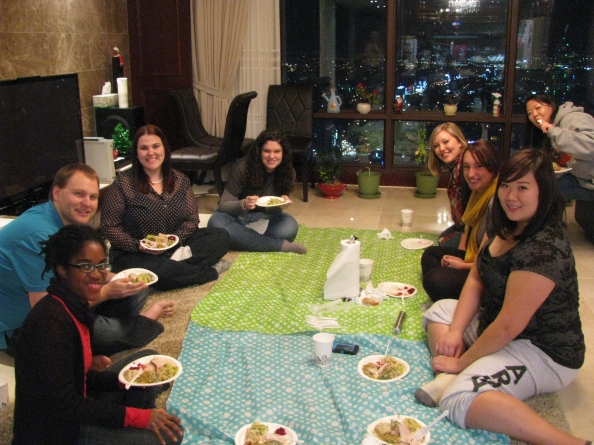
Sometimes the best weekends are spent in with friends! Hanging out with Meagan from Life Outside of Texas and other great peeps for our last Thanksgiving in Korea.
***************************************************************************************************************************
Eating out 5-10,000 krw/nightly ($4.50-9). Korean or Western takeaways and restaurant meals.
Cook at home 2-5,000 krw/nightly ($1.81-4.50). Your same ole boring cooking.
Bottom Line 0-8,000 krw/nightly in savings ($0-7). Just did the calculations and I’m shocked to report that a 5,000 krw ($4.50) a night takeaway habit will cost you nearly 1.9 million krw ($1727) a year!!!! DEAD SERIOUS! Notice that eating out can sometimes be as cheap as eating in. Food is cheap in Korea! Yet, let’s not forget our health! Korean food is often salty and acidic (stomach cancer is the most deadly cancer among males in Korea). Try learning a few recipes online. Soon enough you’ll be making 2-3 huge meat and/or veggie filled meals over the weekend. Eat them throughout the week. Cheap, easy, delicious, and healthy. Boom!
***************************************************************************************************************************
Daily Transport 2,200 krw/daily ($2 USD based on Daegu’s adult rates of 1,100 krw per ride). Train or bus to and from school.
Walk to school 0 krw/daily. Your feet can carry you places for free! Bikes are also amazing.
Bottom Line 2,200 krw/daily in savings ($2 USD). Working 20 days a month for 12 months that’s a yearly savings of 528,000 krw ($480)!!! A friend of ours lived about 30 minutes from her school (significantly more than our 10-15 minutes). Yet, she did the walk. Not only did she save money, but she lost a ton of weight in that year. Saving + Healthier=Awesome! We know this one isn’t feasible for everyone, but there are always opportunities to be creative. If you need to pick up just a few things from the store, why not walk it instead of hopping a bus? If your best friend lives 1 or 2 train stops down the line from you, why not bike it? Every cent counts.
***************************************************************************************************************************
Round the world trip 12,000,000 krw/yearly(230,000 krw X 52 weeks)…($10,909 a year broken down into about $209 a week) **give or take a few thousand krw.
2-3 trips in Asia 4,500,000 krw/yearly (1.5 million X 3 trips)…($4,090 a year broken down into $1363 for each trip) **give or take a few thousand krw
Bottom Line 7,500,000 krw/yearly in savings ($6,818). It’s tempting to do and see everything all at once. And if you’re already good at saving, then a “round the world trip” upon ending your contract and leaving Korea is an amazing goal. However, let’s talk practicality. A year on the road means a year not working or saving. Take your vacation twice a year and throw in a Chuseok (Korean Thanksgiving) or Seol-nal (Korean New Year) vacation. It’ll be better for your bottom line. **Note that the numbers are based on the fact that longer trips often tend to be less expensive than shorter ones (ability to travel in off season, cheaper hostel/hotel rates for longer stays, cooking vs. eating out, etc)
***************************************************************************************************************************
Bottom Line!!! Peace of mind and a safety net. Upon returning to our home country it took Anu just over 6 months and Gen about 7 months to find a job! We have a couple of friends that had to send out over 200 applications before hitting pay dirt. One or two are still unemployed over a year later! You could get lucky and find a job in the first week back, but you might need to invest in university courses to update your skills. Nothing is certain. Not having significant debt looming over your head or being able to fall back on some savings is priceless.
Find Something to do!
When you find yourself freaking out in the middle of the month because you’re account is in the red, it’s time to take up free or low cost hobbies. Not having something to do will lead to shopping sprees, blowout weekends, and financial calamity all around.
1. Learn Korean-Do free language exchanges, take cheap YMCA courses, you can also find free lessons at korean.sogang.ac.kr, talktomeinkorean.com, and howtostudykorean.com. If Korean bores you, try something else!
2. Read-No English libraries/bookstores to run to? If you have an e-reader, computer, ipod/ipad, or smartphone (bleargh!), you can download free books from amazon.com, smashwords.com, gutenberg.org, and more .
3. Movie or music nights!-A lot of websites have free or cheap movies; check youtube.com or buy a vpn and get netflix (until recently only open to US natives, but expanding). Pop some corn and you’re good to go. Or sit back with a glass of wine and a relaxing album. Best way to unwind.
4. Workout-gym memberships are stupid cheap in Korea, or save more by working out in the comfort of your own home.
5.Write-you can blog, keep a journal, or write articles for online sources.
6. Explore-temples, museums, outdoor markets, parks, and concerts are often free or cheap in Korea.
7. Volunteer-this is a great way to do some good and meet new people!
8. Express yourself-Take up sewing, photography, vlogging, painting, ukulele, cooking, dancing, scrapbooking, etc! You get the point.
9. Improve you mind-Interested in mythology? Economics? Civil Rights era? English composition? Law? Take free online classes at coursera.org, edx.org, or mooc.ca.
10. Plan ahead!-Is there a trip you want to take next year? A degree you want to get? A job you have your eye on? Go online and do your research!!! This is a great way to while away some time and accomplish some of your planning.
We did 9 out of 10 of these things, so obviously we tried our hardest not to get in a rut. We got to the point that we would have rather read a book, find a hidden secret in Daegu, or fire up an online lecture than go shopping.
Cut Back on the Bad Habits
We know it’s hard. We have personal experience with expensive bad habits. However, cutting back has saved us tons of cash.
Dipping into your Savings!-Don’t do it! Just don’t. Don’t sacrifice your goal to go on that ski trip. Take out a set amount of spending money for the month and that’s it! In Max’s case, that’s 300,000 krw ($272).
Drinking!-It’s a great way to socialize every weekend. You only spend 20,000 krw ($18) on drinks during the weekend (3-4 mixed happy hour drinks!). What’s the harm? But imagine having 60-80,000 krw ($54-72) extra each month! That’s at minimum 720,000 krw ($654) at the end of a year (round trip airfare!!). Our friend never drinks, but he’s the most social person we know. He knows EVERYBODY and goes out regularly, but he also could afford to buy a macbook air before he left Korea. It adds up.
Shopping!-We like it…especially clothes shopping. We did it often, but even now that we’re back in the States, we go months without even thinking about it. This is a hard one, but think about it. If you’re there for 1-2 years, what are you going to do with all that stuff at the end? Sure you can send it home, but you probably already have stuff there too. Try to cut this habit in half (i.e. shop every other weekend if you do it every weekend).
Smoking!-Yep, cigarettes are cheap, but think about how expensive treatment for lung, throat, or mouth cancer will be in the future. For the sake of your health and pocket, try cutting your intake in half. If it doesn’t work, well at least you tried and maybe saved a few krw in the process.
Use Cash & Keep a Coin Jar.
You’ve heard this mantra time and time again. Using cash will force you to really evaluate your purchases. Trust us, it’s harder to make the decision to break that $10 than it is to whip out that credit card. In that same vein, if you’re one of those people who uses the excuse that you don’t like to carry coins, stash your coins in a jar, shoe box, piggy bank, etc. Once it’s full, take it to the bank and get a hefty return. We know of one person who financed an entire holiday using this method O_O.
Get a Buddy
Finances are personal. We understand that. However, there is value in having someone that’s doing it with you. Think exercise buddy. Saving is hard! Sometimes you need someone there to “talk you down from the ledge” so to speak. You don’t really need that jacket…
Final Thoughts
Those are our thoughts on the matter. We’re far from experts, but we managed to meet our savings goal and then some. We’re both pursuing an alternative path to teaching certification. It’s not been cheap. And, as mentioned above, it took us both more than half a year to find a job. We shudder to consider what might have happened if we hadn’t saved some cash to keep us going in the interim. It’s hard work, but totally worth in the end. Do you have any good tips for saving? Let us know!
***In the last few years the exchange rate for the Korean Won has fluctuated a lot. It’s gone as low as nearly $1 USD to 1000 KRW, (i.e . Americans who transferred 1,000,000 KRW home would net about $1000 USD). At other times it’s been as high as $1 USD to 1190 KRW (this would mea 1,000,000 KRW would net only about $840 USD). Therefore, we tried to use a formula somewhere in the middle. Our conversions reflect a $1 USD to 1100 KRW conversion rate.
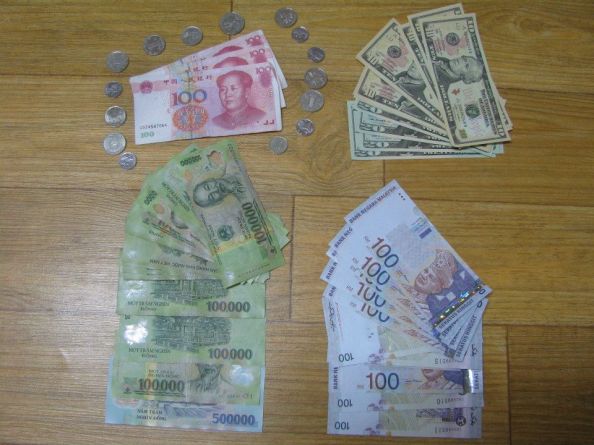

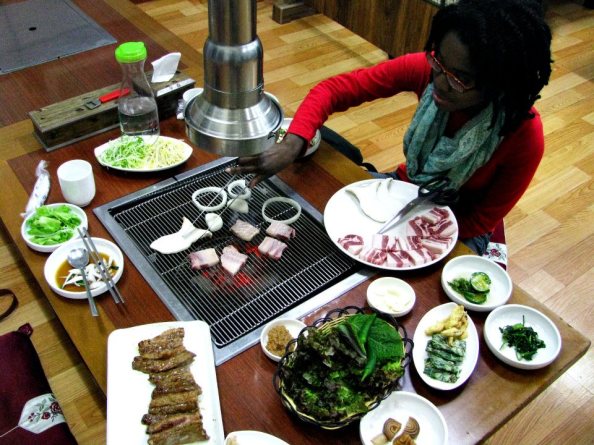
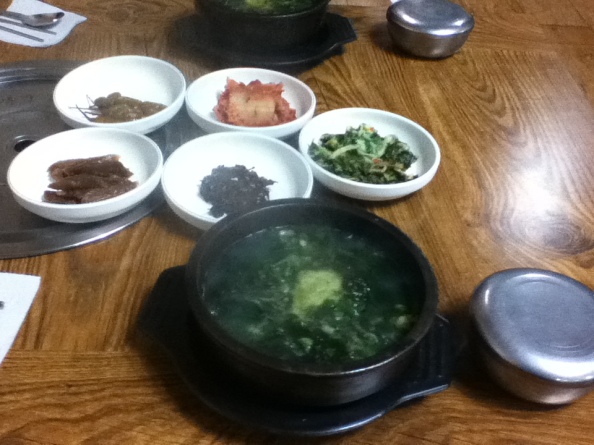

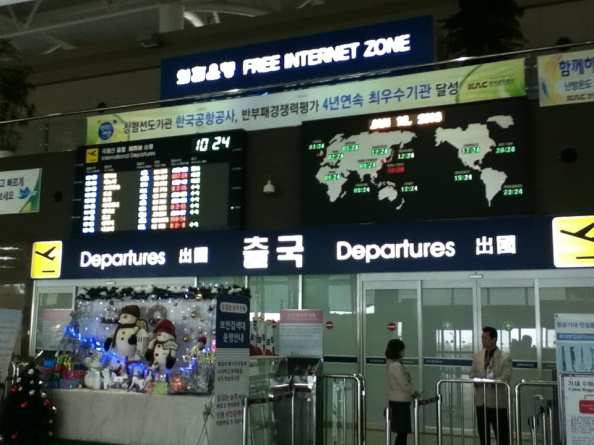


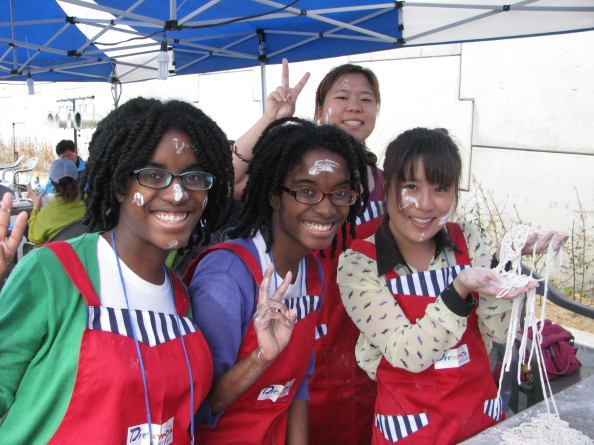
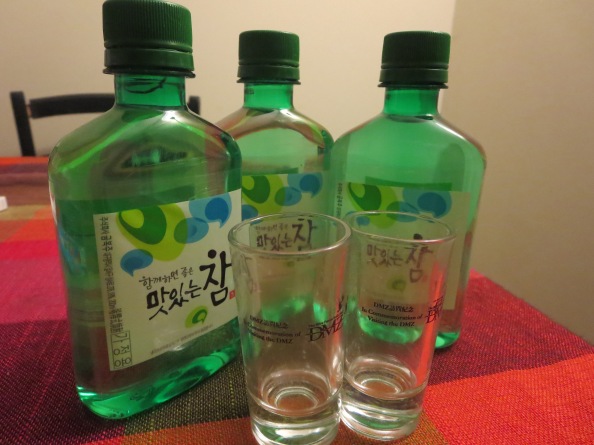
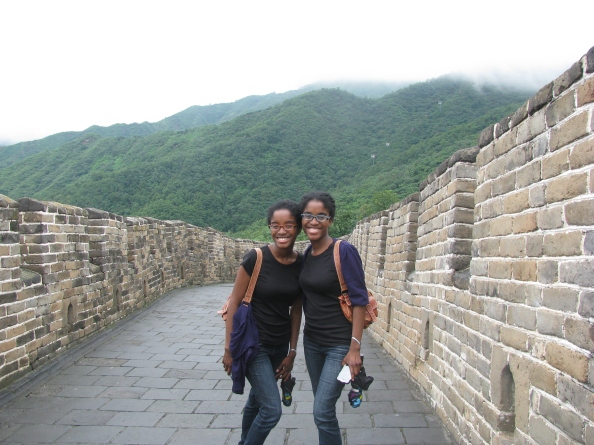
Wordsi
June 4, 2014
Very well thought out and written. Thank you for sharing!
Beyond the 38th Parallel
June 4, 2014
Thank you! So happy it was helpful!